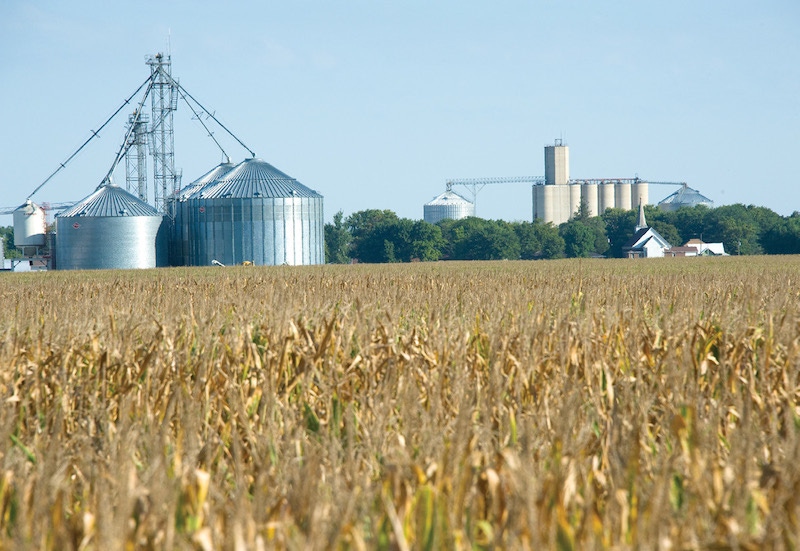November 1, 2016

Editor’s Note: Briefing Room is where we run press releases from companies unedited, for your use.
Moldy corn caused by plant diseases like diplodia ear rot along with stalk quality issues reported in many parts of the Midwest this season mean farmers need to dry corn properly and be especially proactive in protecting the quality of their stored grain, according to GSI (Grain Systems, Inc.).
Gary Woodruff, GSI conditioning applications manager, recommends that harvest be completed soon for corn infected with mold or stalk quality issues. Drying with a high temperature dryer at 180 degrees plenum temperature or higher will help extend storage life, he said, but even that cannot eliminate a reduction in how long the corn can be stored.
Woodruff also advises:
Discoloration and low test weight are good indicators of grain with a limited storage life.
Dry any affected corn to one point lower than normal moisture content, preferably at 14 percent or below, to reduce water which can promote additional mold growth.
Maintain a bin inside temperature in the 30s or below. Temperatures below 50 degrees reduce mold and insect activity, and colder temperatures further reduce the chance of corn going out of condition.
Monitor the stored corn carefully each week to detect any smell, crusting or increase in the moisture content at the surface of the stored grain and take action immediately if detected.
It’s best to leave the grain cold until sold, rather than increase aeration. Aeration is only for changing the temperature of the grain. High aeration airflow will not extend storage life, and as static pressure rises above four inches, it may create issues resulting from air temperature rise from the heat of pressurization.
Market any mold-affected corn early, before the temperature begins to warm up next spring. “Mold-affected corn has a shorter storage life, even with careful management, and should be used early and first, leaving higher quality corn for longer storage,” Woodruff noted.
Always consult your local ag university and Extension Services for recommendations best suited for your area as they vary depending on local climate and conditions.
“Through these management steps, farmers will be better able to protect grain quality, reduce discounts and maximize their profit potential,” Woodruff said.
About GSI
GSI (Grain Systems Inc.), a global brand of AGCO (NYSE: AGCO), is a global leader and manufacturer of grain bins and the most technologically advanced grain dryers in the industry. In addition, GSI offers crop nutrient equipment, structures and a large selection of material handling systems, including bucket elevators and conveyors, grain bin sweeps and chain loop systems. GSI is also a full-line manufacturer of protein production systems for swine and poultry operations. With more than 40 years of industry expertise, GSI is your proven and dependable source for forward-thinking grain and protein agribusiness solutions. www.grainsystems.com.
You May Also Like




